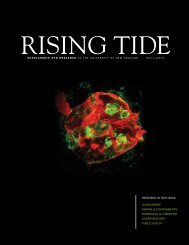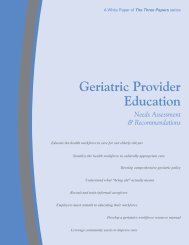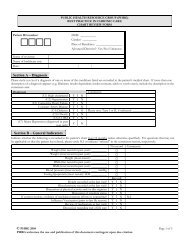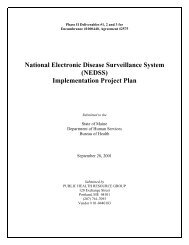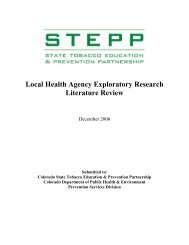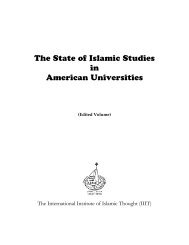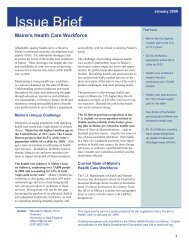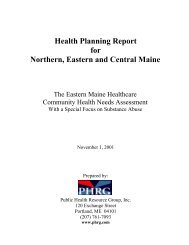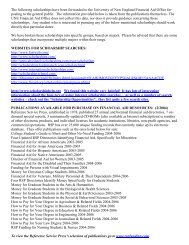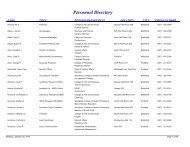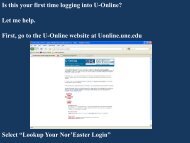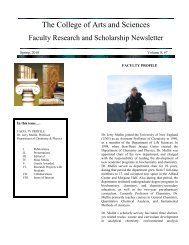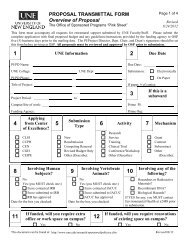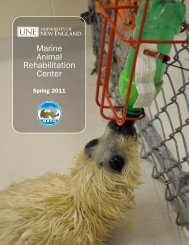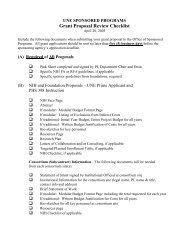Acute Flaccid Paralysis Accompanying West Nile Meningitis Ahmed ...
Acute Flaccid Paralysis Accompanying West Nile Meningitis Ahmed ...
Acute Flaccid Paralysis Accompanying West Nile Meningitis Ahmed ...
Create successful ePaper yourself
Turn your PDF publications into a flip-book with our unique Google optimized e-Paper software.
Delirium and the Family Caregiver: Best Practices for Optimal Care<br />
Carbone, MK, OMS-III, Gugliucci, MR, PhD, Aguilo-Sera, ME, DO,<br />
University of New England College of Osteopathic Medicine, Department of Geriatrics,<br />
Biddeford, ME<br />
Introduction: Delirium is known as an acute confusional state that is experienced by<br />
many hospitalized patients, especially older adults. Delirium presents as disturbances<br />
of cognitive function that can affect orientation, attention, memory and planning<br />
(Meagher 2001). Currently there is substantial research on the risk factors, etiology<br />
and management of delirium. However, there is a deficit of information educating the<br />
delirious patient’s family members and/or caregiver of this medical condition. In<br />
addition there is very little research exploring the impact of caring for a patient with<br />
delirium on family and caregivers. This research addressed two objectives relative to<br />
the medical literature on delirium for older adults: (1) to investigate published studies<br />
that address the impact on the family regarding caring for a loved one with delirium;<br />
and (2) determine if there are interventions that provide family caregivers with<br />
education and/or coping skills to manage delirium.<br />
Methods: A date specific literature review was conducted in several major databases,<br />
including: Medline-PubMed, Medline EBSCO, Medline Proquest, CINAHL, and<br />
Cochrane Collection Plus. Documented interventions related to delirium, family, and<br />
impact on informal caregivers were examined. A process of systematic elimination<br />
revealed key articles that met the objectives. Findings were summarized reporting the<br />
type of education available for family caregivers to aid in the care of the delirious loved<br />
one.<br />
Results: A total of 208 citations applied to the criteria for the initial data base<br />
searches, however after removing duplicate citations only 92 citations remained. After<br />
reading the abstracts of those 92 citations, only 30 journal articles were identified as<br />
addressing the objectives of this project. A complete read through of the 30 articles<br />
were conducted twice. Six articles were identified as focusing on education strategies<br />
for family/informal caregivers, specifically on how to care for a delirious loved one.<br />
These were analyzed and presented.<br />
Conclusion: Since delirium is an acute medical condition that can linger post hospital<br />
and ultimately can lead to death, it is imperative to explore the impact of delirium on<br />
family caregivers and educate them about this life threatening health condition and how<br />
best to augment care. Currently there is a dearth of research explaining and exploring<br />
the impact of delirium on the family/informal caregiver, and how best to educate them<br />
to aid in caring for a loved one with delirium.



